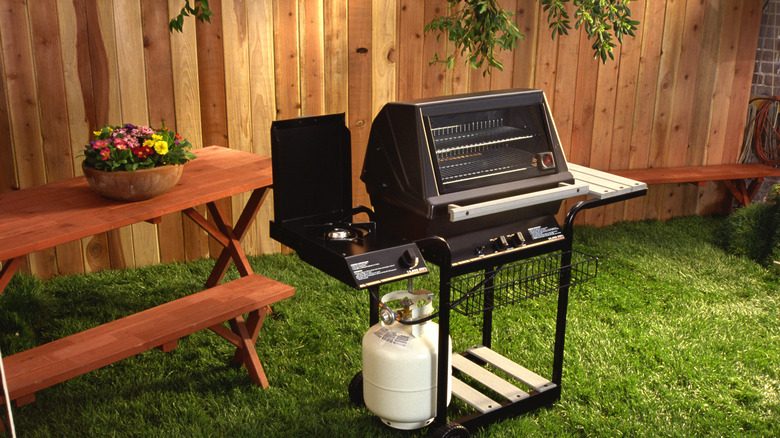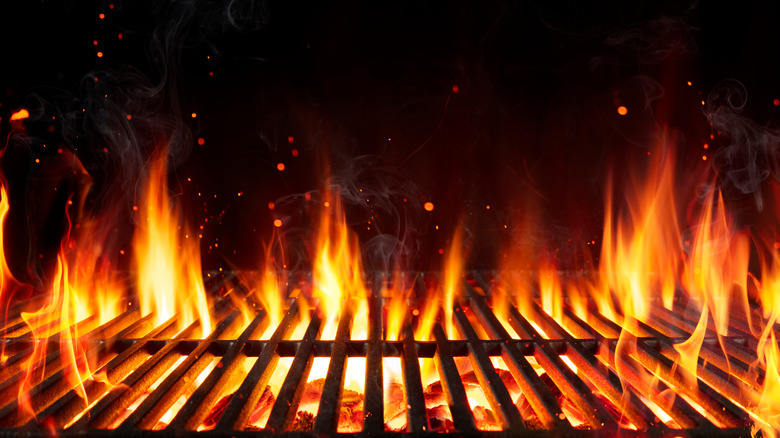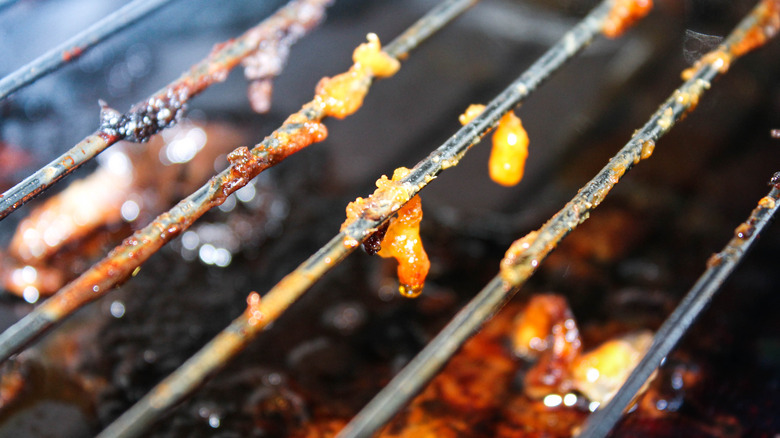The Simple Step That Makes Scrubbing Your Grill A Breeze
Nothing is more off-putting than opening the lid of your grill after a season of disuse to find sticky creosote filaments have corrupted your grate. It's an easy mistake, of course — cleaning a grill grate is unglamorous and often difficult. Besides, who can ever be quite sure when grilling season will actually end? Fortunately, there are plenty of ways to keep your grill nice and clean between uses, but there's one trick in particular that might help save you a bit of time and physical exertion down the road: Leave your grill on for some time after you're done cooking. The best way to clean your grill after using it is to literally do nothing.
This method employs incineration; it's like you're cultivating a crispy carcinogenic crematorium for BBQ drippings. If you leave the grill on for the duration of your meal and simply turn it off when you're done eating, you'll find that the next time you go to scrub your grill grate (hopefully with either an onion or even a balled up piece of aluminum), it'll be smooth sailing — or in this case brushing.
Ashes to ashes
If you let food residue burn up before cleaning your grate, it will not only make your life easier but likely safer. Many of us use metal wire brushes to clean our grill grates, and while there is a lot of controversy surrounding the safety of this practice, you may be able to get away with using one if the stuck-on oil and grease is charcoal. The problem with wire brushes is that they can shed their bristles that then get stuck to greasy grates and wind up in your food. Not only is this a horrifying possibility, it's entirely unnecessary, as there are many other ways to clean your grill efficiently.
The heat from the fire should sterilize the grate as well — but you will ultimately want to get as much charcoal and burnt bits off as possible, as these are considered carcinogens; plus, they taste horrible and will impart a burnt bitterness to most foods.
Safety first
Be careful when leaving the grill on; often, too much build-up on the grate can lead to grease fires. It's important to note that if you do encounter a grease fire, don't panic — turn off your burners or close the air vents. Don't ever try to extinguish a grease fire with water because all that's likely to do is cause the fire to spread. Instead, grease fires can be extinguished with salt, baking soda, or sand: Starve it of oxygen and keep it contained to your grill, and things should resolve themselves safely. (Having said that, it's always a good idea to keep a fire extinguisher to hand somewhere in the household.)
If you let the fire do the heavy lifting by burning up leftover food on the grill grate, once it has cooled, you can effectively clean it with half a lemon — simply dip it in salt and run it over the grate until it stops collecting black soot. Alternatively, you can use tongs and a hefty wad of oiled-up paper towels. Just be sure to let your grill cool off before attempting to do any of these methods; you don't need a dirty grill and a visit to the ER.


